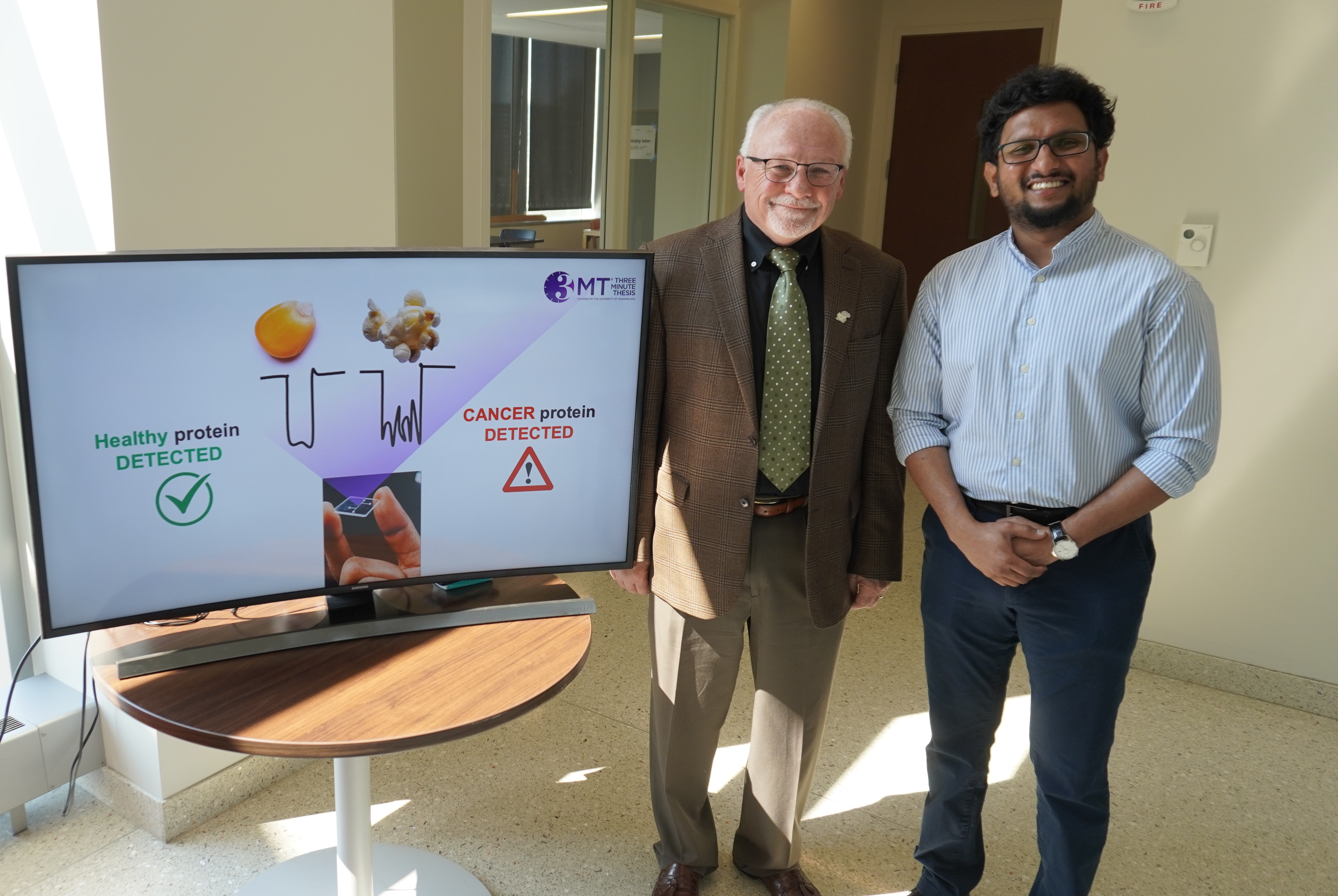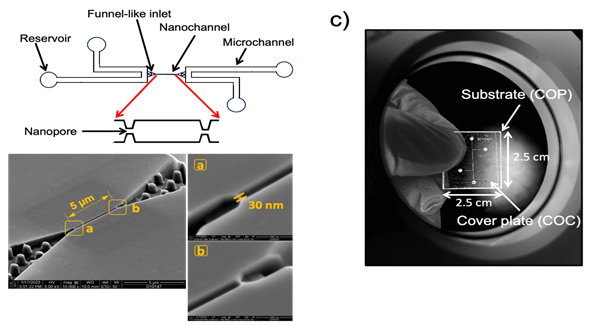Foundation Distinguished Professor Steven A. Soper named April 2025 Sutton Family Research Impact Award recipient

The Department of Chemistry congratulates Distinguished Professor Steven A. Soper on receiving the April 2025 Sutton Family Research Impact Award!
The Sutton Award is a monthly competition among chemistry faculty. Every month, the Chemistry Department Chair and Associate Chairs review the peer-reviewed papers published by chemistry faculty from the three previous months to select a winner. The recipient receives a $500 cash prize and is featured on the departmental website.
For a full list of winners, visit our Sutton Family Research Impact Award webpage.
Insights on Using Plastic-Based Dual In-Plane Nanopore Sensors for Differentiation and Shape Determinations of Single Protein Molecules
By Suresh Shivanka, Farhad Shiri, Maximillian Chibuike, Collin McKinney, Matthew Verber, Junseo Choi, Sunggook Park, Adam R. Hall, and Steven A. Soper
Scientific Reports (2025) 15:13742. https://doi.org/10.1038/s41598-025-96232-y
Proteomics seeks to discover new biomarkers that can transition into clinical diagnostics to enable precision medicine, which seeks to use molecular information secured from individual patients to improve their care by treating the patient with the correct medications tailored to specific characteristics of their disease. However, proteomics is typically carried out using techniques that are fraught with challenges, such as the need for sophisticated instrumentation (LC-MS/MS) and seasoned operators to run the equipment. Even when the biomarkers are discovered, transitioning those biomarkers into the clinic becomes challenging because most protein-based clinical assays use antibodies, which are very expensive. Soper and team are developing a novel protein analysis platform technology that uses a chip-based nanotechnology that can analyze single protein molecules in a label-free format. In this Scientific Reports article, the Soper team report a big jump to realize this nanotechnology platform, which consists of the generation of ~8 nm pores fabricated in a plastic via nano-injection molding, the same technique used to make CD, DVD and Blue Ray discs. The pores can electrically transduce single molecules in a label-free fashion arising from a momentary change in the pore resistance induced by the single molecule (i.e., resistive pulse sensing). Two pores were placed in series with an intervening nanochannel that served as an electrophoresis column and from this sensor, molecular-dependent information on single proteins could be deduced. The utility of this dual in-plane nanopore sensor was evaluated to not only detect, but also identify single proteins by using the travel time (Time-of-Flight, ToF), the resistive pulse event amplitude, the dwell time, and the shape of the single-molecule event. When incorporating the resistive pulse sensing event amplitude, dwell time, and pulse shape in conjunction with the ToF as well as machine learning, the identification of proteins could be realized. The vast array of different protein types and their post-translational modifications in the human proteome and their identification can be realized when coupling the above referenced technology with peptide fingerprinting and exopeptidase analysis of the amino acid composition of peptides. These findings pave the way for the realization of a novel chip-based single-molecule protein analysis technology that can be transitioned into the clinical laboratory to improve health outcomes for patients.
